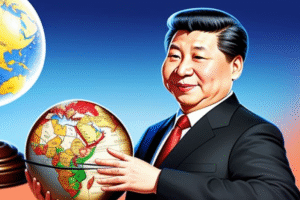$GBP $USD #UKPolitics #EpsteinScandal #Diplomacy #InternationalRelations #GovernmentEthics #PoliticalNews #UKUSRelations #Resignation
Why Did the UK Fire Ambassador Peter Mandelson Over Epstein Ties? Uncover the Shocking Reason!
In a startling revelation tied to the global influence and political integrity debates, the recent dismissal of Peter Mandelson from his ambassadorial role to the United States has sent shockwaves across diplomatic circles. The catalyst? A series of email exchanges with the controversial financier Jeffrey Epstein that came to light, prompting swift action from the highest levels of UK government.
The Emails That Shook Westminster
The content of these emails, which contained additional information beyond professional correspondence, suggested a level of familiarity and engagement that raised eyebrows within the corridors of power. This discovery was not just about personal indiscretions but hinted at potential risks to diplomatic discretion and integrity. As these communications surfaced, they painted a picture that was hard for the public and political leaders to ignore.
Prime Minister’s Decisive Action
Reacting to the unfolding scandal, the UK Prime Minister felt compelled to act to preserve the integrity of the British diplomatic corps. The request for Mandelson’s withdrawal was a clear move to distance the government from any hint of impropriety linked to Epstein’s known legal troubles and controversial background. This action underscores the importance placed on maintaining an unblemished reputation in international relations and the high standards expected of public servants.
Impact on UK-US Diplomatic Relations
The removal of an ambassador is no small matter and signals a serious consideration of the implications of an individual’s actions on broader diplomatic efforts. Ambassadors are, after all, not just representatives of their countries but also symbols of national values and ethics. The UK’s decision to recall Mandelson is indicative of the weight that ethical conduct holds in diplomatic roles, particularly in relations with key allies like the United States.
Public and Political Repercussions
The public reaction has been a mix of shock and affirmation, with many appreciating the government’s swift response to safeguard the nation’s reputation. However, this incident has also sparked a broader debate on the vetting processes for high-profile appointments and the need for greater transparency in the backgrounds and activities of public officials.
Looking Ahead: Lessons and Changes
This incident highlights the need for ongoing scrutiny and perhaps a reevaluation of the criteria and oversight for diplomatic appointments. It also serves as a reminder of the delicate balance between personal freedoms and public responsibilities that those in public service must navigate.
As the UK navigates this challenging diplomatic setback, the implications for future international appointments and the safeguarding of ethical standards in public office continue to be at the forefront of political discourse. This episode, while unfortunate, provides a critical opportunity for systemic change and reaffirmation of the UK’s commitment to integrity in its public and international affairs.
For more detailed analysis on the impact of political scandals on international relations, you can read further articles on our dedicated political news section. Meanwhile, discussions about the influence of personal relationships on political careers and decisions can be explored in our cryptocurrency and governance section.











Comments are closed.